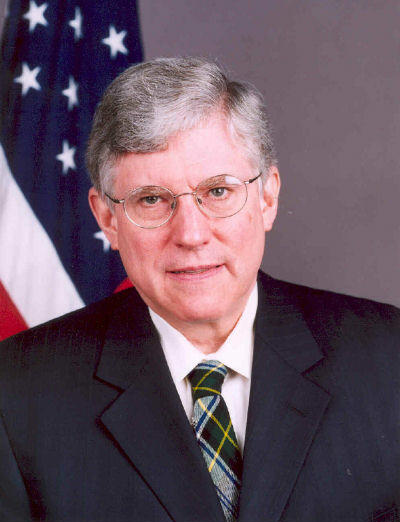John Campbell, a former US Ambassador to Nigeria, says Nigerians have lost trust and confidence in the government.
He berated the attitude of the government and Nigerian politicians, saying the people have never been at the centre of governance in the country.
Campbell spoke during an interactive session on insecurity organised by SaharaTV over the weekend.
The US envoy says he does not think the Nigerian military can be transparent and accountable.
“The lack of confidence and faith amongst many Nigerians in the institutions of government is very worrisome,” he said.
Campbell said Nigerian political leaders have had a long history of not being accountable to the people. This, according to him, reflects on how the country’s big budget for defence has not yielded much success.
“This culture feeds directly into corruption and institutional weakness,” the former ambassador said.
Campbell stressed the need for restructuring in Nigeria so that the institutions are accountable to citizens.
“There is no formula to restructuring, all that is needed is for the people to sit, think, look for what will work for everyone and create a strategy,” he said.
In her remarks, Aisha Yesufu, rights activist and co-convener of the Bring Back Our Girls movement, noted that the primary function of the government was to secure the lives and property of citizens but added that the government had failed to do that.
She said Nigerians allowed the government to get away with the abdication of their duties.
She said, “The Nigerian government has not only failed the Nigerian people, but they have also failed themselves. You see the impunity, disregard and disdain for Nigerians. They can get away with it because we are a nation of people who are ready to allow them to abdicate their responsibilities.”
Ossai Ojigho, Country Director, Amnesty International in Nigeria, said equity, fairness and justice make it a lot easier to navigate the cumbersome nature of the classifications.
“The government says we are one, but they do not address the divisions and the dissatisfaction that the people harbour towards themselves. They deliberately set the narrative of difference to push a certain agenda,” she added.
Dr Kole Shettima, a public scientist, stressed the need for continuous activism to strengthen institutions across the board.
“We have significant structural problems and constitutional problems. We need to challenge the constitution. I believe that we have to challenge it in different ways and manners to protect the little spaces that we have.
“Part of the strategy is to empower individuals and even some state governments to challenge powers at the centre.
“If many of our state governors become president of Nigeria, we are probably going to be in the worst situation than we have found ourselves because of the way they have been behaving and trampling on the rights of people,” he said.
SR



